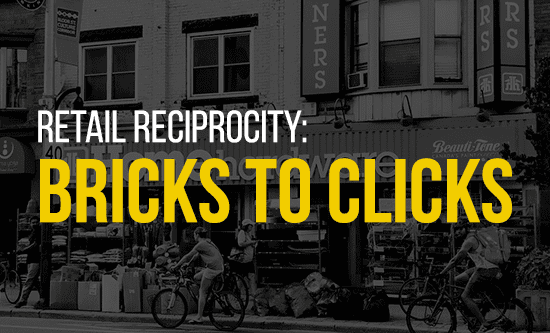At first glance, Home Hardware’s locations, might appear to be unlikely bastions of a brand renowned for highly personable and helpful customer service. Commentators have wondered if their stores are designed by “medieval contortionists” based on the constrictive aisles and chaotic floor plans.
Yet, it is precisely this quirkiness and authenticity that has helped this $6 B revenue retailer thrive against the likes of Big Box chains and online behemoths such as Amazon. So far, the story has been that high levels of service and product knowledge beat the competition, but with changing demographics, the diffusion of the winning in-store formula to online is likely imperative for survival.
Symbiosis
Home Hardware has been unusually explicit about the type of relationship they wish to have with their customers in their marketing messages. While the current motto of “Here’s How” is strongly suggestive, the previous tagline was even more definitive about the brand’s intentions (see image right).
If we unpack this tagline, we see a clear message of empathy: you’re a homeowner, we’re also homeowners. Similarly, “helping” suggests a focus on personal relationships, rather than interacting with a faceless corporation. The invitation to “ask the experts” is suggestive of a desire to create value for the customer, as opposed to thoughtless revenue extraction.
Before you have even walked into the store for your first visit, the tagline prepares you for a mutually beneficial relationship, which is based on reciprocity and creating value for both the customer and the brand. This leads to willfully engaged customers, who are more likely to transact, purchase more frequently, spend more per visit and are worth 3 or more times to the brand when compared to non-highly engaged customers².
A Tough Act to Follow
Home Hardware’s helpful and expert staff would seem unrecognizable to patrons of London’s shops in the 1880’s as colorfully recollected by a Chicago retailer’s magnate, Harry Gordon Selfridge:
‘Is Sir intending to buy something?’ asked one supercilious man. ’No, I’m just looking,’ replied Selfridge, at which the floorwalker dropped his pseudo-smart voice and snarled, ’Then ’op it mate!’
At the time, radical ideas such as the “free entrance” pioneered by entrepreneurs like Alexander Turney Stewart in New York had not crossed the ocean to England. Stewart introduced “the shocking concept of not hassling customers the moment they walked through the door”⁴. Prior to these innovations, sales staff were primarily concerned with providing security for goods, and extracting revenue from patrons systematically and swiftly.
In contrast, Home Hardware management prides itself with staffing its stores with experts that remain current with on-going access to seminars and are committed to continuous learning through new product training¹. This often also means stacking the roster with staff members with pedigree and credentials such as running their own wood stove operations, or being members of a competitive BBQ team.
Aside from providing deep expertise in product knowledge, the smaller scale and community-focused nature of the stores allows staff to recognize customers and to engage with them at a personal level. Staff are uniquely positioned understand what current projects a customer is working on and make helpful recommendations. For example, staff can suggest relevant products to customers that are frequently visiting the store within a weekly period related to a large project underway.
While it is hard to argue against the effectiveness of Home Hardware’s expert staff strategy, it is a challenging model to scale and to adapt to changing customer expectations. Pessimists will argue that attempting to use technology to scale this experience would be alienating for customers and would only debase the brand ethos and mythology through detached and impersonal e-commerce. However, marketing technology has evolved where delivering relevancy and personal attention at scale is now routine…
Read the full article >>>
 You are one click away from getting your own copy of “Retail Reciprocity: Bricks to Clicks” by Joe Maraschiello, Business Development & Region Director at Digital Alchemy.
You are one click away from getting your own copy of “Retail Reciprocity: Bricks to Clicks” by Joe Maraschiello, Business Development & Region Director at Digital Alchemy.




